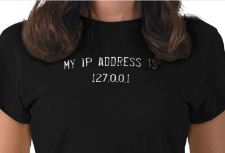 While opinions, definitions, and scope vary, it seems fairly clear that lawsuits targeting BitTorrent pirates do little to prevent mass piracy. A steady stream of suspected pirates continuously line up to become the next individuals to face potential legal action, regardless of how many that has happened to previously.
While opinions, definitions, and scope vary, it seems fairly clear that lawsuits targeting BitTorrent pirates do little to prevent mass piracy. A steady stream of suspected pirates continuously line up to become the next individuals to face potential legal action, regardless of how many that has happened to previously.
For companies whose movies are downloaded and shared illegally, solutions have been developed that allow them to monitor suspected pirates and track them back to their ISPs, before obtaining their identities and making a settlement offer to end the risk of a full-blown lawsuit. For many movie companies, this business model provides a stream of revenue from those perceived as unprepared to pay for their product.
Internet users targeted by lawyers working for those companies often view settlement demands of up to thousands of dollars as disproportionate to any actual damage suffered. Nevertheless, huge numbers of people have paid up over the years, with their cash often being handed to a law firm in the first instance. From there, payments typically wind their way back to the movie companies, with intermediaries also involved taking their cuts in what has become a global, industrial-scale settlement factory.
Movie Companies Sue Lawyer In Dispute Over Settlement Cash
Millennium Funding, Bodyguard Productions, and LHF Productions are behind famous movies including The Expendables, Olympus Has Fallen, and The Hitman’s Bodyguard. They’ve also built a reputation for demanding cash settlements from alleged pirates and more recently, filing lawsuits against internet service providers alleged to have knowingly harbored them.
In a lawsuit filed at an Illinois district court last week, the companies target attorney Michael Hierl of Illinois, and Hughes Sokol Piers Resnick & Dym, Ltd, a Chicago law firm of which Hierl is a shareholder.
According to his
profile
, Hierl has practiced exclusively in the area of intellectual property law since 1980; the lawsuit claims that Hierl and his law firm carried out work for the plaintiffs, including “filing infringement actions against and collecting monetary settlement payments from third-party infringers.”
In a nutshell, the plaintiffs allege that the defendants have refused to provide a “complete and accurate accounting identifying all costs, fees, and receipts for each infringement action” and failed to forward settlement amounts received in those actions.
The movie companies allege a breach of contract but note that due to the defendants’ alleged accounting deficiencies, they are unable to put an exact figure on the amount Hierl and his law firm failed to pay. For their part, the defendants view the situation quite differently.
Fighting Pirates, Help From Agents
The lawsuit describes Millennium’s entry into this particular piracy-fighting arena as follows:
To help combat infringing copies of Millennium’s Films being sold and distributed through the Internet, in 2012, Millennium and its predecessors in interest, through their prior agent, engaged Defendants to prepare and file infringement actions against the third-party infringers in the United States District Court of the Northern District of Illinois.
The name/s of Millennium’s “predecessors in interest” go unnamed at this point, with the same applying to Millennium’s “prior agent”. The complaint simply notes that the agent would supply Hierl and his law firm with the IP addresses of suspected infringers and they would file ‘John Doe’ complaints and “propound subpoenas to non-party internet service providers” to determine the identity of the suspected infringers based on their IP addresses.
Once suspected infringers were identified, the defendants reportedly amended the complaints to name the suspected infringers. In the event the named defendants agreed to settle, Hierl and his law firm were authorized to take a percentage of the settlement amount as their contingency fee and then send the balance to Millennium’s agent.
“Since Millennium engaged Defendants in 2012, Defendants have filed hundreds of cases on behalf of Millennium and parties that have since merged with Plaintiff Millennium Media, Inc., in the Northern District of Illinois against third-parties infringing Millennium’s Intellectual Property,” the complaint adds.
New Agent Replaces Prior Agent
Millennium says that in 2019 (date unspecified), it appointed a new agent “to communicate with Defendants on Millennium’s behalf to coordinate Defendants’ enforcement of Millennium’s Intellectual Property, thereby replacing Millennium’s prior agent.” This change was communicated to the defendants on December 7, 2020, the complaint notes, adding that all future payments should’ve been made to the new agent.
In common with the prior agent, the new agent’s name isn’t identified at this point. However, Millennium says that the defendants should’ve sent the new agent “monthly reports providing details of the Infringement Actions including, but not limited to, any number of actions filed, the number of settlement agreements reach, and collections made as a result of any such settlement agreements.”
On unspecified dates in 2021, the movie companies said they “detected discrepancies” between the information available from the dockets of the infringement actions brought on their behalf and the “information and accountings” the defendants had provided to the movie companies, including “what appeared to be settlement payments Defendants collected but failed to report and pay to Plaintiffs.”
The complaint alleges that since then, and despite numerous requests for Hierl and his law firm to provide files “and a complete and accurate accounting” for the infringement actions carried out, none have been forthcoming.
‘Prior Agent’ Was Part of Infamous Guardaley Settlement Operation
The complaint refers to a letter dated November 23, 2021, in which Hierl responds to a proposed complaint by Millennium which outlines the movie company’s differences with Hierl and his law firm. It contains the following paragraphs:
Some clarifications are in order before moving on.
CMS and PML
CMS (the ‘prior agent’) is a reference to Copyright Management Services Ltd, a company that has appeared in many lawsuits targeting alleged BitTorrent pirates in a number of jurisdictions on behalf of many copyright holders. The company was founded by Patrick Achache, a leading figure at anti-piracy tracking firm Maverickeye, which in turn works with German/UK company Guardaley; Achache previously described himself as Guardaley’s data director.
As previously reported, Achache stopped being a director of CMS on November 19, 2019, and the same day, Lubesly Tellidua – a beauty queen from the Philippines with links to Achache and Guardaley – became the controlling party. In July 2022, Tellidua filed an application for CMS to be struck off the register of companies and on October 25, 2022, official records in the UK reported that the
company had been dissolved
.
PML (the ‘current agent’) is a reference to
PML Process Management Ltd
, a Cyprus-based company that began life under a different name before switching to its current name in the first half of 2020.
By 2021, many lawsuits in Sweden alone
suggested a link
between CMS and PML, if only due to the latter picking up where the former had left off while continuing to use data provided by Maverickeye as the basis of copyright actions.
As reported in 2022, copyright notices sent to US ISP CenturyLink in support of a DMCA subpoena application by Millennium and several other companies, referenced infringements between January 2020 and January 2021; the notices were
issued by a known Guardaley partner
in the UK, some marked as sent by CMS, others PML.
Since Cypriot public business records tend to obfuscate company ownership, claims that PML was simply CMS with a new coat of paint, and/or under new ownership, remained speculative.
Hierl and Hughes Sokol Piers Resnick & Dym, Ltd: CMS is Our Client
From the statements in the complaint, the position of Hierl and Hughes Sokol Piers Resnick & Dym seems clear: their business relationship is with CMS, nobody else. In February 2021, the law firm wired $19,100.39 to Millennium, reportedly at the direction of CMS, PML and Millennium itself.
“A balance of $69,765.78 was wired to CMS based on our understanding that CMS and Millennium had agreed,” the letter continues. “Our firm has no relationship with PML (attorney-client or otherwise). Further, we were not aware of any unresolved fees allegedly due PML. Our information was that PML was not entitled to any portion of the settlement recoveries.”
Familiar Names, Familiar Companies
At this point, Hierl’s letter references what appears to be a change in the business arrangement, one that he nor his company acknowledge having agreed to. Relevant as that might be, the end of the paragraph is more interesting.
“There was no agreement to change the distribution from ‘gross collections’ to ‘net collections.’ But PML already knows that because CMS and PML apparently use the same accountant, Thomas Nowak, who was a recipient of that email.”
Thomas Nowak is the director
of German-based UK-registered company Guardaley and German-based tracking company Maverickeye, whose evidence netted Millennium and other
filmmakers big wins
, including some against VPN providers.
Spare All Parties From “Senseless Litigation”
In his November 2021 letter, Hierl calls on the movie companies to find some common ground to avoid “time and expense of senseless litigation.” The lawsuit filed last week suggests consensus was elusive. A November 2022 letter sent to Hierl by the plaintiffs notes that while CMS may be Hierl’s client in some capacity, the attorney reportedly filed several cases on Millennium’s behalf, meaning that Millennium is also a client.
“In addition, Millennium requests that you cease all communication with Patrick Achache, CMS, and/or any company associated with Mr. Achache or CMS related to any matter involving Millennium. Moving forward, please report all information and developments in any case you are handling for Millennium to us,” the letter concludes.
Overall, Millennium believes that there is an enforceable contract and it’s owed $130,000 in collected settlements. The movie companies are suing for breach of contract and request an order requiring the defendants to provide a full, current and complete accounting of the infringement actions. They’re also seeking monetary relief in an amount to be decided at trial.
PML says that it has “ten years of experience in this field” and provides a “seamless service delivery” on behalf of its clients.
“We offer returns of 30% of net revenue (the rest is distributed to the partners working on the project, e.g. law firms and data supplier) in exchange for providing this service,” a statement on its website reads.
How all of this dovetails with a March 1, 2019, claim that Guardaley had
handed over its United States operations
to an entity called American Films isn’t clear.
In this lawsuit, American Films receives zero mentions but according to a
recent press release
, ISPs can take advantage of an offer to prevent themselves being sued for their customers’ piracy activities. This arrangement involves another company using an American Films subsidiary’s tracking abilities.
The complaint can be found here (
pdf
)
From:
TF
, for the latest news on copyright battles, piracy and more.
chevron_right
 Today, it’s common knowledge that IP-addresses and downloads of BitTorrent users can be easily monitored by tracking outfits.
Today, it’s common knowledge that IP-addresses and downloads of BitTorrent users can be easily monitored by tracking outfits.


 Over the past several years we’ve covered dozens of
Over the past several years we’ve covered dozens of









 Strike 3 Holdings has been a familiar name in U.S. federal courts for a while now.
Strike 3 Holdings has been a familiar name in U.S. federal courts for a while now.


